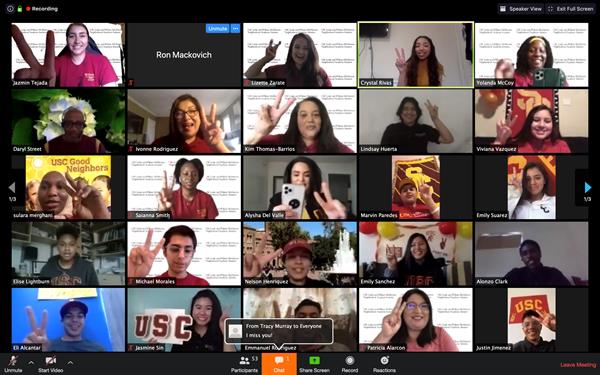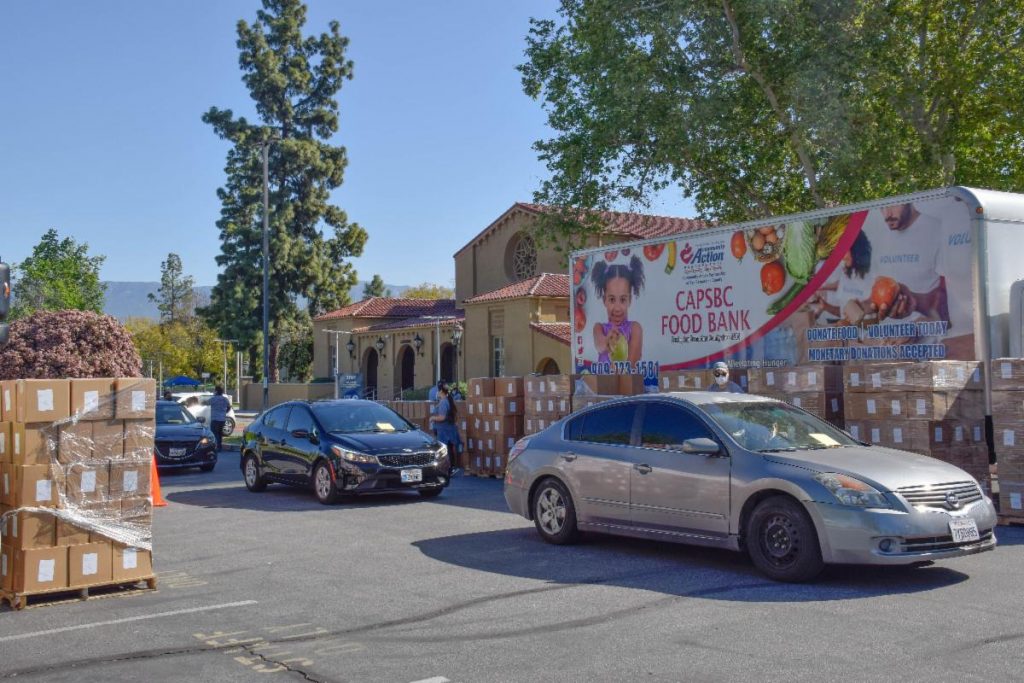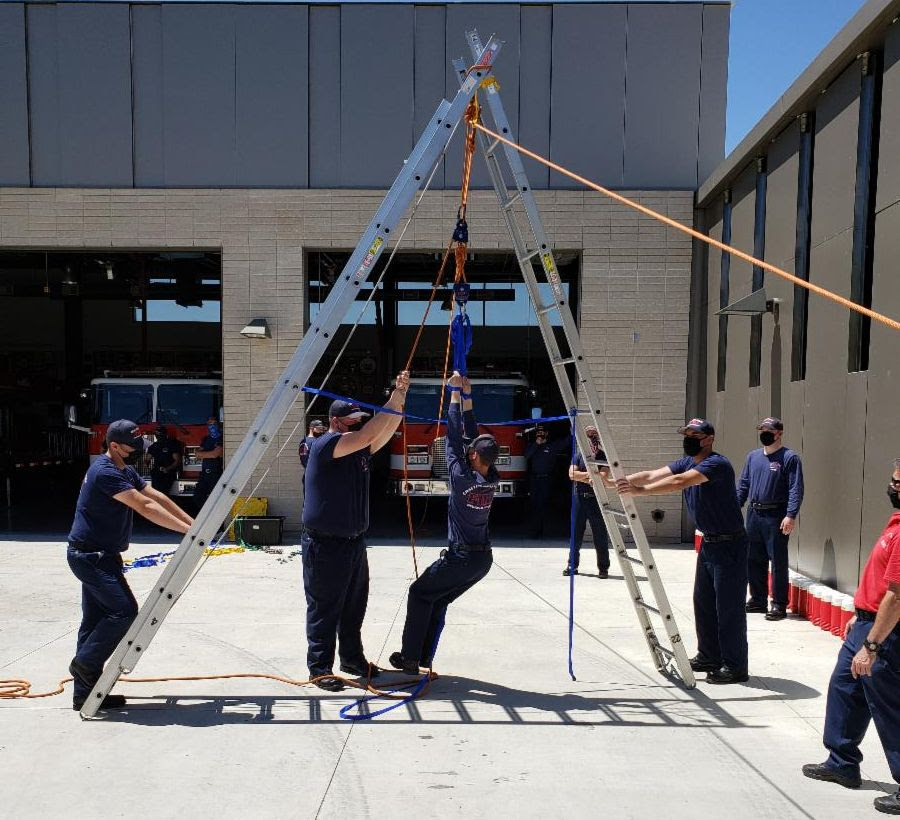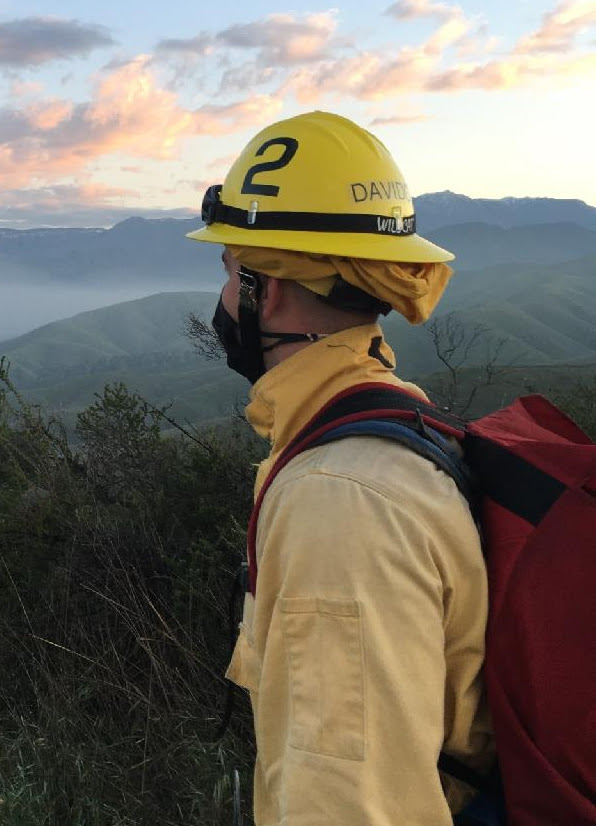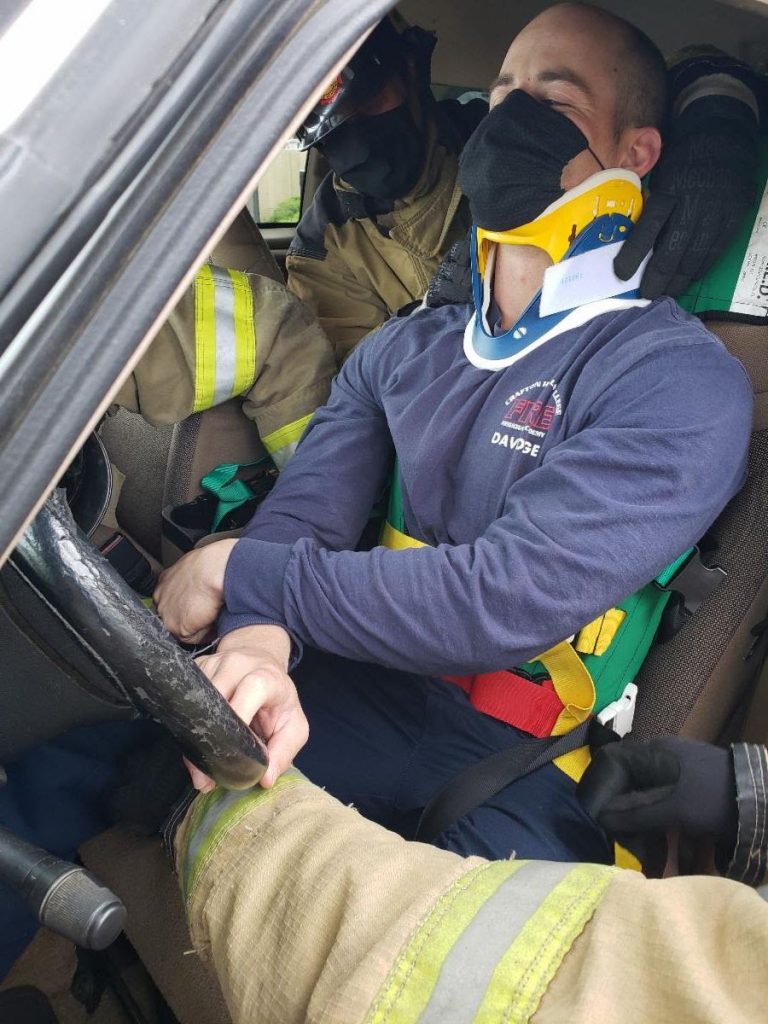YUCAIPA, CA—-Amid campus closures and stay-at-home orders caused by the COVID-19 pandemic, the Crafton Hills Fire Academy has continued to meet and train students who will join the front lines with other first responders fighting fires and saving lives. Against all odds, 29 cadets will complete their Fire Academy training in mid-May.
Despite these overwhelming circumstances and challenges to instruction, Crafton Hills College is the only college Fire Academy in California that continued their 16-week training program while also adhering to and maintaining the strictest of social-distancing guidelines. All 29 students have earned their firefighter 1 certificates.
“It is truly exceptional how our college president, Dr. Kevin Horan, our Trustees, our administration, and our faculty have stepped up to keep our program going,” said Michael Alder, Chief, Crafton Hills College Fire Academy. “In the face of many uncertainties, everyone was adamant that we should keep going, meet the needs of our firefighting workforce and complete training for these students in advance of the 2020 fire season.”
Crafton Hills faculty adjusted for COVID-19 safety requirements by limiting groups of students, adjusting instructional methods, and increasing cleaning of equipment and surfaces between each training exercise. Students were split into three groups for instruction. Each group met in their own classroom and maintained 6 feet social distancing while instructors used live stream and Zoom technology to share classroom information with students before going out into the field. Adler also added, “the cadets and instructors perform temperature checks twice a day and will continue to do so throughout the remainder of the academy.”
“We also had a friend of one student who heard that we needed masks,” Adler said. “She volunteered and made masks for all students, faculty and staff in our program so that we could continue to meet safely and protect everyone as requested under COVID-19 guidelines.”
Because firefighting is a physically demanding profession, strength and physical stamina are required. Maintaining these rigorous training requirements for the program were also challenging during the pandemic.
“Our students must meet certain physical requirements before they are accepted to the Academy,” Chief Adler said. “This program has a kinesiology and physical training component that requires our students to meet each morning for a series of conditioning workouts to prepare them for the day-to-day tasks of a professional firefighter.”
Fire Academy instructors were able to continue this regimen with our students by monitoring them through the Strava activity tracker app. “Our instructors even took the physical activity component of our training into consideration and hosted Zoom or Facetime workouts, Strava activity check-in’s, etc. to make sure that students were staying in shape despite our stay-at-home order.”
Applicants for municipal firefighting jobs generally must pass a written exam; physical test of strength, physical stamina, and agility; and a medical examination that includes drug screening and a psychological test; a lie detector test and an oral interview. Those who receive the highest scores in all phases of testing have the best chances for employment. The completion of community college courses and a degree in fire technology, and the completion of a community college Fire Academy Program may significantly improve an applicant’s chances for appointment.
“Not only are the physical requirements of these cadets demanding, but their coursework is also very challenging,” Alder added. “All students must pass a series of competency exams in three main categories- firefighter skills, hazardous materials, and wildland. These exams alone are stressful, but adding the pandemic component drives the stress level even higher.”
The fire service has been experiencing higher than normal employee turnover due to the Baby-Boomers that are exiting the workforce for retirement. This has left a large workforce void that needs to be filled. The Crafton Hills College Fire Academy and Fire Technology Program are fully prepared and committed to continuing to meet that demand and professionally educate and train these future firefighters.
“I shared with our cadets that they would be in a unique position upon completion of the program,” said Alder. “The job outlook is very favorable, and they will not be competing with other applicants as they normally would at this time of year. I shared this statistic with the students, and I believe it was a pivotal moment that motivated them to keep going, work hard and complete the program in the face of these circumstances.”
In California between 2014 and 2024 it is expected that approximately 1,200 new Firefighters will be hired annually, with 100 of those each year in the San Bernardino and Riverside area. Employment of Fire Fighters is expected to increase slightly faster than the average for all occupations. Labor Market Source: State of California Employment Development Dept.
“These students have persevered and earned their firefighter 1 certificates despite even more intense circumstances than most of our cadets,” said Alder. “It truly is extraordinary how our administration, faculty, staff and students have worked together to be successful during these challenging times. I am so proud of how everyone pulled together. These cadets will graduate with honor and they have exhibited the can-do, persevering attitude and character that all amazing firefighters show.”
For more information about Crafton Hills’ Fire Academy, contact Michael Alder, Chief, malder@craftonhills.edu or 909-389-3408. For more information about Crafton Hills College, visit CraftonHillsCollege.edu.
 Westside Story Newspaper – Online The News of The Empire – Sharing the Quest for Excellence
Westside Story Newspaper – Online The News of The Empire – Sharing the Quest for Excellence
